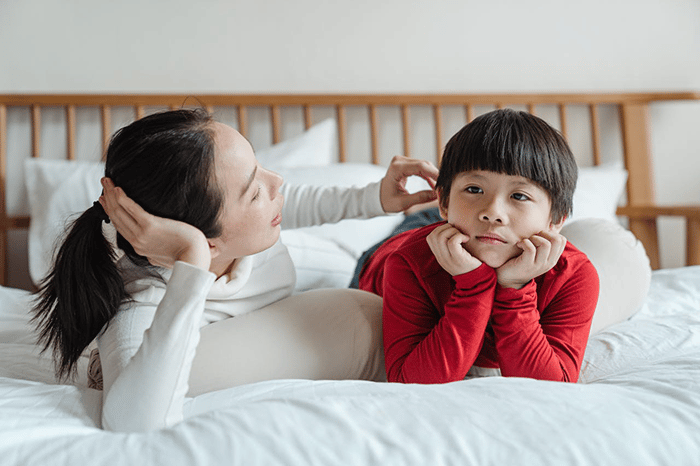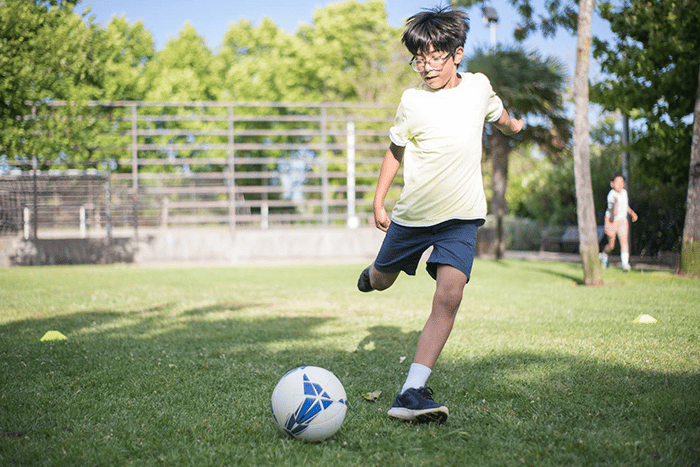Sleep and Exam Preparation: Ensuring Your Child Gets Enough Rest....................
- Maintain Routines
- Talk To Them
- Teaching and Rehearsal of Relaxation Skills
- Physical Activity
- Observe and limit screen time
- Provide a Supportive Environment
Introduction
We all have those moments when, sometimes, it feels the biggest hurdles that life is pitching at us are too overwhelming. Children are no exception. Imagine your child who learned to overcome his/her anxiety suddenly starts acting stressed out again. This can be frustrating and puzzling for both the child and parents alike. Anxiety relapse is quite common in children; hence, early detection of symptoms would make a huge difference in keeping the condition at bay. Knowing how best to help your child when feelings of anxiety return will make you better placed at creating a supportive and nurturing environment for him or her. Being a parent, it is crucial to recognize symptoms associated with anxiety relapse and make sure children remain emotionally and mentally healthy.
How to Recognize Anxiety Relapse
- Increased irritability or mood swings
- Withdrawal from social activities or friends
- Sleeplessness or frequent nightmares
- Loss of interest in things they used to be interested in doing
- Headaches or stomachaches
- Excessive worry or fearfulness about everyday things
- Declining grades or an inability to concentrate at school
- Constant clinging to parents/carers for reassurance
Avoiding Relapse in Child Anxiety
Maintain Routines
Such consistency brings security to children. Regularity in schedules for meals, homework, playtime, and sleeping times create predictability, which lowers anxiety in children. As much as possible, abide by these routines during the weekends and holidays. Whenever necessary, explain in advance to your child if changes take place. Doing so can make them feel more in control, then less anxious about new or out-of-ordinary situations.
Talk To Them

Help him/her express feelings and deal with fears and concerns. Checking regularly will create a safe environment in which the child will begin to express his feelings without the fear of being judged. Be available to listen actively. Validate the feelings, so they understand it. It might make one respond fast to early symptoms of anxiety and take quick measures to solve them. Let them know it's okay to get anxious and that you are there to help.
Teaching and Rehearsal of Relaxation Skills
Relaxation skills include very powerful tools that help children fight anxiety. Start to teach your child some simple techniques, such as deep breathing, progressive muscle relaxation, or mindfulness meditation exercises. Practice the techniques involved together initially, more frequently during calm periods, so he or she feels comfortable using them during feelings of anxiety. Children will learn how to cope healthily with stress and hence avoid a relapse into anxiety if these techniques are reinforced.
Physical Activity

Physical activity not only keeps the body fit but also the mind. Always encourage your child to do what they like, be it sports, dancing, or just playing outside the home. Exercise releases endorphins in the body, which acts as a mood elevator and relieves a person from stress. Make physical activity fun and regular in your routine as a family. You are building an exercise habit that will keep your child resilient to anxiety by engaging them in everyday activities.
Observe and limit screen time
Excessive usage will increase their level of anxiety and will disturb their normal sleep. Limit the amount of time your child spends on electronic devices, making sure that other activities they engage in are activities that make him or her relax and cultivate creativity. Establish screen-free zones and times, like the bedroom or during meals, to ensure better sleep and more meaningful family interactions. Be cautious of what your child views or reads from media or any communications. This shall be appropriate to age and not include provoking information.
Provide a Supportive Environment
A very supportive home environment helps in preventing a comeback of anxiety. Offer a space to your child where he feels safe, loved, and understood. Be patient and show compassion and sympathy toward the struggling child. Offer reassurance and encouragement. Moreover, let them join as many hobbies as possible and interests that they like and hence get satisfaction out of them. Keep them surrounded by positive people, friends, family members, and mentors who can offer extra support. Most importantly, a strong support network can secure the child and reduce the risk of relapse of anxiety.
Deepali Verma is a senior food and wellness writer with over a decade of experience in top media houses, crafting engaging narratives. She is a professional home baker and loves exploring food from every corner of the world to reading cookbooks. She believes a healthy lifestyle is a combination of mental, spiritual and physical fitness. Her goal always remains to keep moving, eating seasonal and practicing gratitude.
The views expressed are that of the expert alone.
The information provided in this content is for informational purposes only and should not be considered a substitute for professional medical advice, diagnosis, or treatment. Always seek the advice of your physician or another qualified healthcare provider before making any significant changes to your diet, exercise, or medication routines.
Reference
https://www.ncbi.nlm.nih.gov/pmc/articles/PMC9374222/
https://www.news-medical.net/health/How-to-Ease-Anxiety-in-Children.aspx










